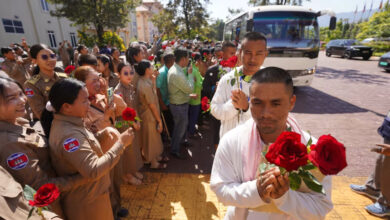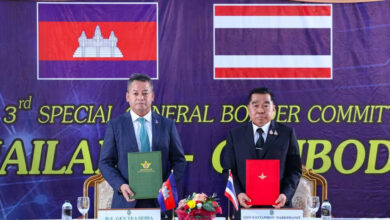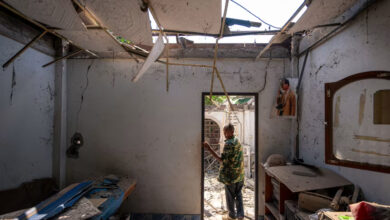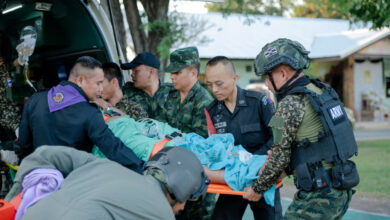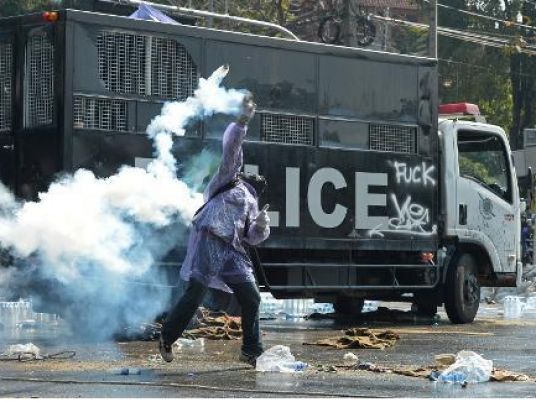
A Thai court accepted a new case on Wednesday against Prime Minister Yingluck Shinawatra, compounding her many legal problems as she resists pressure to step down over five months of sometimes violent street protest.
Twenty-four people have already died in the crisis, including an anti-government protester on Tuesday after weeks of calm in Bangkok.
Yingluck's supporters plan mass rallies of their own this week to counter attempts to remove her from office by activists also determined to stamp out the influence of her brother, ousted ex-premier Thaksin Shinawatra.
The Constitutional Court accepted a case brought by a group of 27 senators who petitioned it to rule that her removal of National Security Chief Thawil Pliensree in 2011 violated the constitution. The case said the prime minister abused her position by moving the security chief to an inactive post.
"The court accepts the case regarding Yingluck's transfer of Thawil and has the right to consider the case," court spokesman Somrit Chaiyawong told Reuters. He said he could not yet say how long it would take to conclude.
Yingluck's supporters have accused the Constitutional Court of bias in frequently ruling against the government.
The court struck down a bill last year that would have made the Senate upper house a fully elected body and quashed a costly infrastructure plan intended to buttress the economy.
In another victory for the opposition, the court on Wednesday threw out a petition by Labour minister Chalerm Yoombamrung asking it to rule that the anti-government protests aimed at forcing the government out violated the constitution.
Yingluck faces separate charges of negligence brought by the National Anti-Corruption Commission over a rice subsidy scheme that has run up huge losses. Should it forward the case to the Senate for possible impeachment, she could be removed.
That would require the votes of three-fifths of the senators. Thailand's 150-seat Senate is made up of 77 elected senators. The other 73 are appointed and are largely seen as opponents of the government.
Weekend Senate elections suggest it will have a pro-government majority.
Anti-government protesters are now banking on military or judicial intervention from courts seen as hostile to Yingluck.
Army chief wary
Army chief Prayuth Chan-ocha, who is months away from retirement, appears wary of the international and domestic backlash to a coup. Prayuth has for months skillfully parried questions over possible military intervention.
"If you were working in a company and didn't see eye to eye with the company's owner, would you chase your boss out?" Prayuth asked reporters on Wednesday in a typically cryptic answer. "I will do as I am told and I will not comment."
The military, which has staged numerous coups since Thailand became a constitutional monarchy in 1932, overthrew Thaksin in 2006. It has stayed out of the fray this time.
"He hasn't buckled under pressure so far because he knows that the army has made the mistake of getting involved in the past, leading us to the mess we are in today," analyst Kan Yuenyong of the Siam Intelligence Unit said of Prayuth.
Yingluck's "red shirt" supporters have called for a mass rally in Bangkok on Saturday.
More militant factions within her camp say they are gearing up for a fight if she is removed from office.
Anti-government protesters first took to the streets to oppose an amnesty bill that critics said would have permitted Yingluck's brother to return from self-exile. The bill was eventually rejected by the Senate, but protests continued and new demands emerged.
Thailand has really been in crisis since Thaksin was ousted in 2006. The conflict broadly pits Bangkok's middle class and conservative establishment against Yingluck and Thaksin's supporters in the north and northeast.

